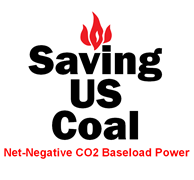
 






.gif)



|
Signature Sponsor


By Dipka Bhambhani
December 4, 2018 - The two-week global climate talks in Katowice, Poland, kicked off this week.
There are two noticeable differences in the tenor of the meetings from previous years.
First, the hostility toward fossil fuels is somewhat muted in Poland, a country reliant on coal, one which consumes more than 135 million tons of it each year according to the International Energy Agency.
In fact, the landing page of Poland’s website on COP24 talks about finding ways to use coal.
The “Polish government is trying to create favorable conditions for the construction of a profitable, effective and modern hard coal mining sector, based on cooperation, knowledge and innovation,” the Government of Poland said on its site.
Second, the Trump administration is amplifying its message of energy access and poverty reduction through fossil fuels, a message starting get some traction among some unlikely supporters in places like France where growing protests and full-on riots over higher fuel and carbon taxes threaten the longevity of French President Emmanuel Macron’s climate agenda. Those protests were well underway as Macron left for Katowice to help kick off COP24.
“Energy access and poverty eradication are incredibly important points,” said George David Banks, President Trump’s former international energy and climate advisor headed to Poland this week. “We don’t address them enough in climate negotiations.”
Those are two out of 17 United Nations Sustainable Development Goals.
Last year, UN Deputy Secretary General Amina Mohammed said countries could meet the Sustainable Development Goals and the goals of the 2015 Paris Agreement concurrently.
Banks has helped organize a group of Trump administration officials and U.S. energy industry executives for a repeat performance on December 10 in Katowice of the celebrated side-event on fossil fuels and nuclear power, which drew the ire of environmentalists and energy ministers in November 2017 at climate talks in Bonn.
Banks had assembled that inaugural panel, "The Role of Cleaner and More Efficient Fossil Fuels and Nuclear Power in Climate Mitigation,” where he extolled the virtues of fossil fuels in meeting a growing global energy demand.
Though Banks is not on this year’s panel, his legacy continues.
The new messengers include Banks’ successor, Wells Griffith III, Steve Winberg, assistant secretary for fossil energy at the Energy Department, and Rich Powell, executive director for ClearPath, a clean energy lobbyist. The panel could add a representative from a U.S. natural gas company and someone from the Environmental Protection Agency.
Concurrently, the U.S. delegation will be among the 192 countries trying to hammer out the rulebook of the Paris Accord--how to keep the increase in Earth’s atmospheric temperature below 2 degrees Celsius since the start of the industrial revolution by driving international investment in renewable energy sources and phasing out fossil fuels.
In a twist, the delegation may have to defend the Trump administration’s unsupportive position of the recent National Climate Assessment, a report released by 13 federal agencies outlining the hundreds of billions of dollars climate change-related events could cost the country. The report was released over Thanksgiving, but the discussion is expected to come up in Poland this week.
While the report came out of the federal government, it did not originate in this administration. The genesis of the report is from a 1989 Presidential Initiative by late Former President George H.W. Bush.
Don’t Kill the Messenger
U.S. presidents have handled global climate negotiations in a variety of ways, but the U.S. delegation has always been present.
President Trump pulled out of the 2015 Paris Agreement in 2017, but the U.S. does not officially vacate its international climate mitigation obligations until 2020.
Banks and others have said it’s always important to keep a seat and a practical voice at the table during global climate change discussions.
“Environmentalists don’t understand energy markets and they want to believe that we can simply replace fossil fuels with renewables,” Banks said.
Most international leaders do seem to understand, as evidenced by their actions, not necessarily by their rhetoric.
President Trump has been clear from his first State of the Union Address in 2017 that he believes in developing all energy resources, and he has.
He’s also propelled coal as promised. While he’s drawn criticism for his continued support of fossil fuels, he’s been consistent.
German Chancellor Angela Merkel, conversely, won the hearts of many of her citizens more than a decade ago when she announced Germany was “going green” going off fossil fuels and nuclear energy to reduce emissions 40 percent from 1990 levels by 2020, its own target. She told her citizens what they wanted to hear, not necessarily what was practical.
The transition known as Energiewende came with a high price for German consumers.
Because Germany decided to phaseout nuclear power in the wake of Japan’s Fukushima Daiichi accident in 2011, the country had to shift to imported coal, some of which comes from the U.S. In 2016, Germany imported more than 90% of its coal, nearly 17% from the U.S.
These are the realities beyond the rhetoric at climate change conferences, said Barry Worthington, executive director of the U.S. Energy Association.
Sometimes delegations are deaf to the practicality of fossil fuels, or a world where fossil fuels coexist with renewables. But Americans will bring that message of practicality and diversity of resources, Worthington said.
The less aggressive tenor of this year’s Conference of the Parties may allow for that conversation.
Banks said this year’s side-panel will certainly look like last year’s panel in which Worthington participated, but the message needs to be delivered until it’s heard, until it’s understood. Renewables alone is not the answer, he said.
All types of energy production causes waste, and the world’s leaders need to be practical about energy development and energy access, he said.
“In reality there’s no such thing as clean anything. Any manufacturing process is going to leave behind some waste,” Banks said. “Renewable energy has waste that people don’t talk about. It’s a little unfair to say coal has to be clean and these others don’t.”
In its report, The Footprint of Energy: Land Use of U.S. Electricity Production, research firm Strata says coal, natural gas, and nuclear power leave a smaller footprint than solar and wind power in terms of land use.
Many developing countries struggle with land-use issues especially if their economies rely on agriculture, where large swaths of farmland would not be used for energy development.
The Strata report showed that coal, natural gas, and nuclear power use 12 acres per megawatt produced while solar and wind use about 43.5 and 70.6 acres per megawatt, respectively. Hydroelectricity generated by large dams has the largest footprint using 315.2 acres per megawatt.
The report notes that solar panel construction requires additional land to produce chemicals and other resources, and most U.S. solar panels come from China, which largely uses coal power in the production process. |
 











|
.jpg)